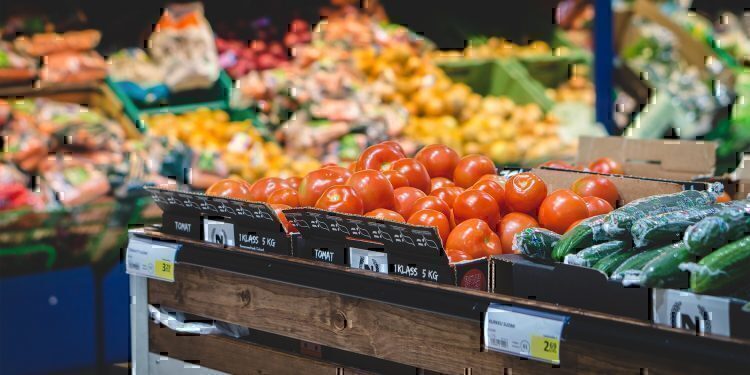By Taylor Miller, Navy spouse and Community Manager at the Foodbank of Southeastern Virginia and the Eastern Shore*
“Who has ever struggled with hunger?”
The audience of residents, community advocates, and leaders sheepishly looked around the room. After a brief moment of uncomfortable silence, the speaker proclaimed that everyone’s hands should be raised. Surely each of us had experienced the feeling of a growling stomach before a late dinner; or, maybe even the sensation of fatigue after having to skip lunch due to a busy schedule? There was some chatter, even laughter in the audience as everyone recalled those experiences. However, the conversation quickly turned somber. The speaker explained that while nearly everyone has experienced hunger, many of us are fortunate to know where we can go to get our next meal— whether it is at home, the grocery store, or even out at a restaurant. Currently, 1 in 8 Americans are not that lucky; they are food insecure.
NOT IN OUR COMMUNITY?
Many people would be surprised to learn that some of those who struggle with food insecurity are the very ones who are serving our country. While statistics on how many military families are going hungry, either consistently, or on a temporary basis, are pretty much nonexistent, anecdotal evidence suggests food insecurity with military families is a real issue. A 2016 report, released by the Government Accountability Office, highlighted the difficulty in obtaining a number as to how many active duty families are enrolled in federal assistance programs like Women, Infants, and Children (WIC) and the Supplemental Nutrition Assistance Program (SNAP) because the numbers are not fully tracked. But around a military installation, all you have to do is wait in line at the local grocery to see the use of food assistance programs. Maybe you use them yourself now or in the past? You are not alone. Nearly $67 million of SNAP benefits were spent at commissaries in fiscal year 2016.
REAL PEOPLE. REAL NEEDS.
When D. McNeil’s family of four moved overseas for her spouse’s new billet, she was forced to resign from her job and they became a single income household. PCS costs added up and when they needed some additional help in making ends meet, WIC was there.
Kim R., an Air Force spouse, was on WIC for just under a year after giving birth over a decade ago. She was introduced to the program by one of her nurses after her baby was found to be lactose intolerant and required an extremely expensive formula. This program was a lifesaver to their family who now regularly gives back to their local food bank as a way of teaching their daughter about the importance of these programs. When asked if she ever faced any scrutiny for being enrolled in the program, she said that they were very private about it and that her spouse’s command never knew. “Every mother wants to have a healthy baby,” Kim R. said. “It really is about the nutrition of the child.”
Military families are struggling with food insecurity for many of the same reasons as their civilian counterparts. Root causes include loss of income or a financial emergency, such as an unexpected car repair. Moves and high spouse unemployment, both of which are common in the military community, can also impact a household’s food security.
Did you know?
WIC assists families by providing Federal grants to States. These grants help with supplemental foods, health care referrals, and nutrition education for low-income pregnant, breastfeeding, and non-breastfeeding postpartum women, and to infants and children up to age five who are found to be at nutritional risk. SNAP benefits help supplement an individual’s or a family’s income to help buy nutritious food.
There is a discrepancy between the qualification processes for food assistance which may prohibit active duty military families from accessing SNAP. Even though both WIC and SNAP are administered through the USDA, their income eligibilities differ. In short, BAH is counted towards a household’s overall income when they apply for SNAP whereas it is exempted when that same household applies for WIC. This can have severe implications for families especially when they PCS and have a change in BAH.
THIS COULD BE YOU.
Food insecurity does not discriminate. Everyone is at risk, whether it be long-term or temporary. One small financial setback, unexpected bill, or change in residence can have a huge impact on a family’s ability to pay for food. Individuals enrolled in SNAP and/or WIC, or accessing a food pantry, are our family, friends, and neighbors, including those who are putting their lives on the line for this country. If you need help with access to food or know of someone who does, please visit feedingamerica.org to locate your nearest food bank. To learn more about WIC overseas, visit tricare.mil/wic. You are not alone.
*This story originally appeared in the February issue of Military Spouse.




